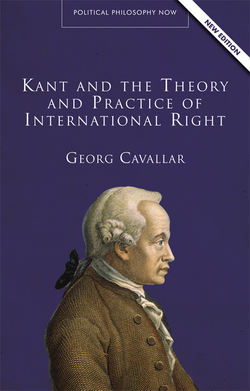Kant and the Theory and Practice of International Right

Реклама. ООО «ЛитРес», ИНН: 7719571260.
Оглавление
Georg Cavallar. Kant and the Theory and Practice of International Right
Отрывок из книги
POLITICAL PHILOSOPHY NOW
Howard Williams, Aberystwyth University, Wales
.....
Frederick’s Prussia has been characterized as a state ‘owned’ by its army. Were legal freedom and Enlightenment only possible because Prussia was in a sense a military state? Many representatives of the Enlightenment answered in the negative. Johann Georg Schlosser, for instance, claimed: ‘Wherever there are standing armies, lasting freedom of the citizens is impossible.’43 Particularly after the War of American Independence, German intellectuals argued in favour of a militia, with citizens willing to defend their country. Kant agreed in principle that standing armies should be abolished in favour of an army composed of ordinary citizens (see VIII, 345). However, he did not believe that standing armies necessarily undermined political freedom. Quite to the contrary, Kant held that contemporary events in Prussia contradicted this theory. For Kant, Frederick’s rule was an example of how ‘a well-disciplined and numerous army’ may ‘guarantee public security’, the precondition of the Enlightenment process (VIII, 41, 24f.). Frederick’s army was indeed numerous. The Soldatenkönig Frederick William I had built up an army of 83,000. After 1740, the Prussian army encompassed 100,000 soldiers, and in 1786 around 200,000.44 In the Political Testament of 1752, Frederick advised his successor to choose military studies as the main subject and to be ready for war all the time. Since Prussia was surrounded by powerful neighbours, its military should be number one in the state.45
Kant was caught in a dilemma. On the one hand, he repeatedly deplored the fact that rulers wasted money on building up armies instead of financing education and the sciences. ‘[T]he state … (as Büsching laments) has no money left over to pay qualified teachers who will carry out their duties with enthusiasm, since it needs it all for war’ (VII, 93, 1–3; VIII, 28, 15–18; XXVII, 470). Financial support for education, particularly for schools in the countryside, remained indeed marginal. Frederick had no interest in educating the masses. He thought that ‘a little reading and writing’ was sufficient, and it prevented young people in the countryside from becoming ambitious.46
.....